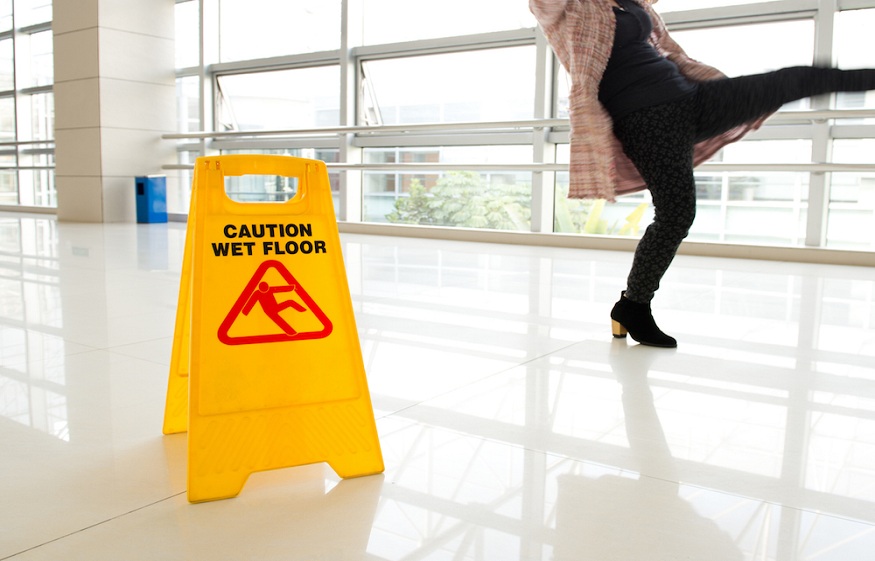Would companies ignore insurance? We might think so if we compare the number of companies operating in France – a little over 4 million according to Agence France Entrepreneur – to the number of contracts signed by companies – around 2 million according to the French Federation of Insurance. Are companies not obliged to take out insurance? How do they cover the risks associated with their activity? Explanations through the basic insurance of any good company: professional civil liability.
What is professional civil liability?
For those planning to take the CPA exam, it is important to know your options and which and how to buy a CPA review course.
Note: Please use this as the last sentence of Item #2 Is RC Pro compulsory?
Professional civil liability, more commonly known as “RC Pro”, is the contract that any company worthy of the name must at least take out to protect itself and its employees.
Indeed, it intervenes as soon as the responsibility of the company, one of its employees, one of its services or its equipment can be engaged. In other words, all bodily, material or immaterial damage which could be caused to others by fault, negligence or recklessness can be covered by RC Pro. The latter protects in particular against all the financial consequences of this damage, consequences that could lead to bankruptcy.depending on the extent of compensation. It should rather be appreciated as a provision for a fatal risk rather than as a burden. To ignore the RC Pro is therefore a miscalculation.
Is RC Pro compulsory?
In theory, only business premises insurance is compulsory (premises occupancy guarantee), whether the company owns the premises or is a tenant. It protects against any risk of fire, explosion or water damage.
Of course, if vehicles are used in the course of the activity, they must be insured as required by the highway code. Otherwise, nothing forces a company to have insurance to cover its risks, despite its legal obligation to assume all damage caused to third parties by people or property for which it is liable.
However, there are exceptions: certain regulated professions must be able to present professional civil liability. This is particularly the case for the medical professions (doctor, nurse, midwife), legal and consulting professionals (lawyer, notary, bailiff, real estate agent, architect, accountant, etc.). Finally, the building craftsmen are obliged to subscribe to a ten-year RC which will take charge of any defects in their achievements during the 10 years following the end of the site.
In what situations is professional civil liability useful?
You are a trader and a customer is injured while visiting your shop, restaurateur and one of your preparations causes food poisoning, mechanic and a customer’s car is damaged during your intervention, gardener and you back up in the customer’s portal or of his neighbor …
Here are some common situations, with bodily injury or property damage, for which Liability Pro insurance can be useful. Here we speak of “operating” civil liability, that is to say during the performance of the service or in the daily life of the company. This operating insurance extends to more serious cases such as, for example, an industrial accident involving the employer or a medical error if the professional is a doctor.
The company’s liability even extends to immaterial damage such as a financial loss following a delay or a non-performance (example: the manager is immobilized and cannot provide the service ordered) or a drop in turnover following an error in a consulting activity.
To complete its coverage, a company can choose to subscribe to a civil liability “after delivery”. The latter assumes the damage caused to third parties after delivery of the product or completion of the service. It also helps the business cover replacement or modification costs.
What is the cost of Pro Liability Insurance?
If it is possible to insure a micro-business from € 20 / month, we can say that there are as many professional liability insurance rates as there are companies in France. Indeed, it is very difficult to give an example of price as the criteria used in the calculation of the premium vary from one structure to another:
. turnover: the higher it is, the greater the financial risk to be covered for insurance. The amount of the premium is inevitably affected;
. the size and status of the company: it is obvious that a self-employed person who occupies an office at home presents less risk than an SME of 50 employees with industrial premises and equipment;
. the sector of activity: construction companies, for example, where the risks are high (financial stakes, delays, bodily accidents, poor workmanship), bear high premiums;
. the type of cover: depending on its budget and especially the risks linked to its activity, the company will have to choose between a contract simply covering its operations and a more complete formula with guarantee “after delivery” also including legal protection;
. the specificities of the contract: as in any insurance contract, the deductibles (amount to be paid by the company for each claim), the ceilings (amount beyond which the insurance no longer covers) and exclusions (situations for which the insurance cannot be triggered) vary the amount of the premium.
Is professional civil liability sufficient?
A simple professional civil liability is insufficient for companies wishing to develop and last over time. We would rather recommend a Professional Multirisk insurance. It is generally a tailor-made contract capable of protecting the company at all stages of its activity. A professional multi-risk guarantee or “MRP” generally includes an extended RC Pro, legal protection but also the insurance of vehicles, premises and their contents and sometimes specific guarantees meeting the particular needs of the company.

